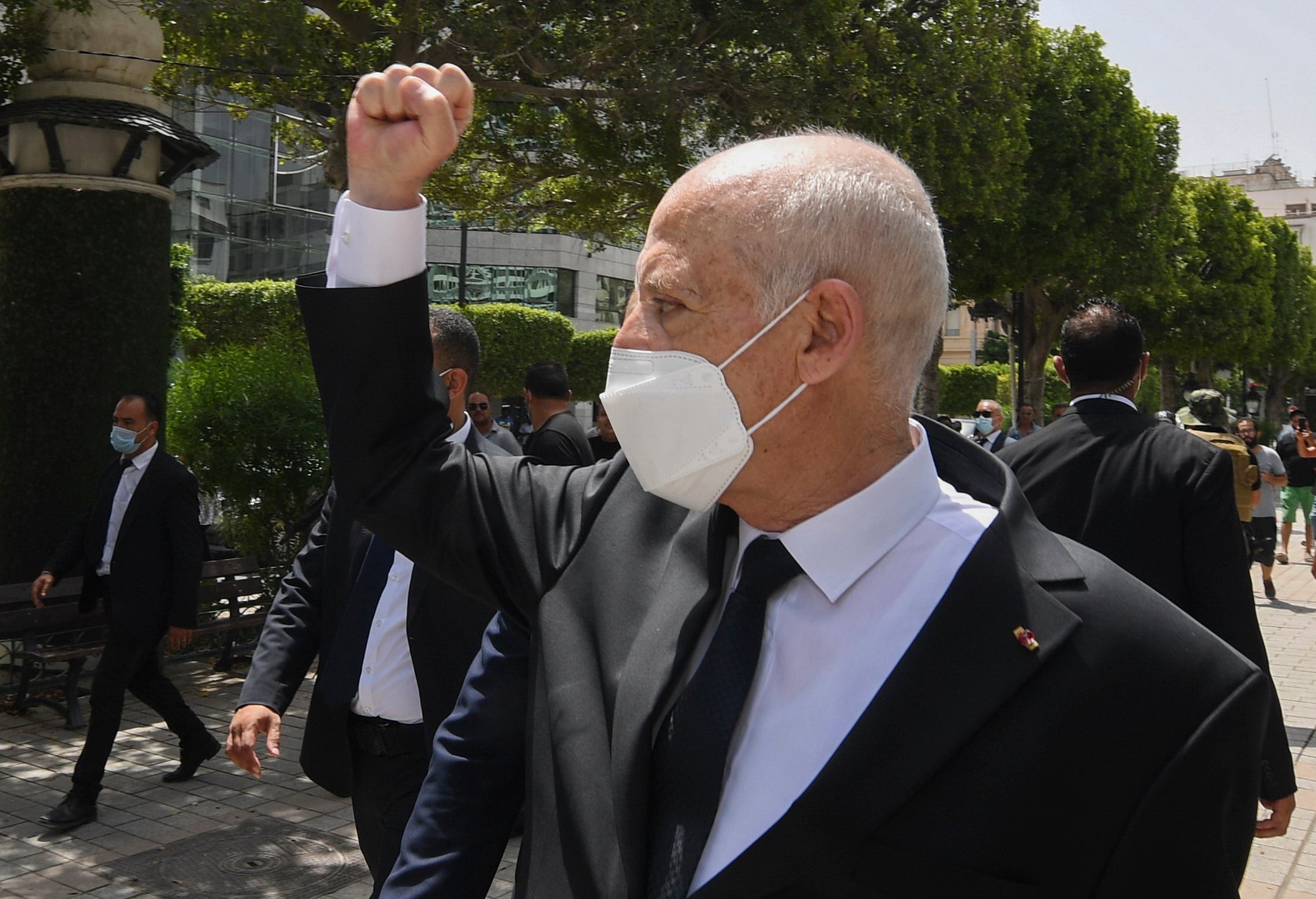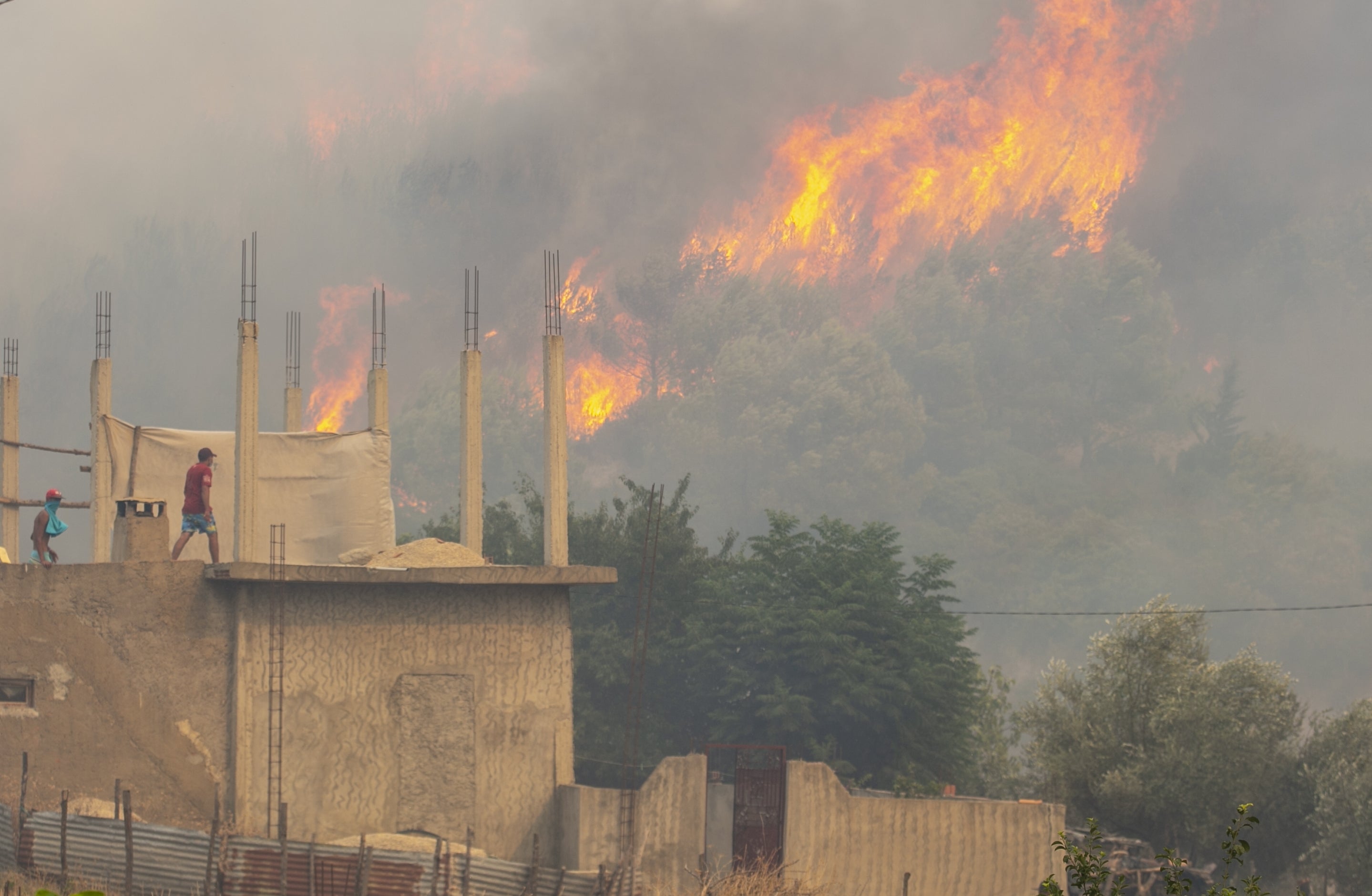Tunisia’s president extends suspension of parliament indefinitely in move dubbed ‘dangerous for democracy’
Leading figures in Tunisia’s Islamist Ennahda party say parliament suspension is ‘unconstitutional’

Tunisia’s president Kais Saied has extended the month-long suspension of the country’s parliament “until further notice”, in a move his chief opponents have claimed is unconstitutional and “dangerous” for the democratic process in the country.
In a written statement posted online, Mr Saied said he would also continue the cancellation of MPs’ parliamentary immunity, which he lifted last month when he dismissed the country’s prime minister and assumed executive powers.
He also extended the suspension of parliament and said he would address the nation “in the coming days”.
His main opponents, Tunisia’s largest political party the Islamist Ennahda Movement, labelled the original move a “coup” and told The Independent that Monday’s late-night decision to extend the suspension was “unconstitutional” and had plunged the country into a “political vacuum”.
“We haven’t got a government, all powers are in the hands of one man and this is dangerous for the stability of the country and for the democratic process,” Rafik Abdessalem, a member of the Ennahda’s executive body, told The Independent. He is also the son-in-law of parliament speaker Rached Ghannouchi, who heads up the group.
“The president needs to respect the constitution, there needs to be the appointment of a head of government and a parliament. This is the only political solution for the country, otherwise this will be the end of the democratic process in Tunisia,” he added.
In a dramatic move last month, Mr Saied dismissed the premier, suspended parliament, lifted parliamentary immunity and ordered a string of dismissals, arrests and corruption investigations.
He defended his intervention, saying it was needed to save the country from collapse after weeks of nationwide protests calling for radical reforms and regime change. Anger had been boiling in the country due to years of misgovernance, corruption and political paralysis that had been aggravated by a surge in Covid-19 cases.
Mr Saied cited article 80 of the constitution, which allows the president to take some exceptional measures but stipulates that 30 days after the measures are taken the parliament speaker or 30 MPs are entitled to query “whether or not the circumstances remain exceptional”.
The staunch independent appears to have widespread popular support in Tunisia, although his actions have been branded a power grab by some experts and opposition figures concerned that the president now has a monopoly over power.
A month on he has yet to appoint a new prime minister or announce a roadmap demanded by western allies and key players in Tunisia, including the powerful trade unions.
Instead, the authorities have placed several officials, including former ministers, under house arrest and prevented politicians and businessmen from travelling. Meanwhile, Tunisia has been grappling with wildfires that in scorching temperatures have raged across the Mediterranean basin.

Mr Saied was elected to office in a landslide victory in 2019 after vowing to stand up against corruption.
Also on Monday Mr Ghannouchi dismissed the party’s executive committee amid criticism of his handling of a month-old political crisis.
The parliament speaker has faced pressure from within his own party to step down.
“Ennahda’s head decided to dismiss the party’s executive members and restructure it in a way that responds to the requirements of the phase,” the party said in a statement.





Join our commenting forum
Join thought-provoking conversations, follow other Independent readers and see their replies
Comments